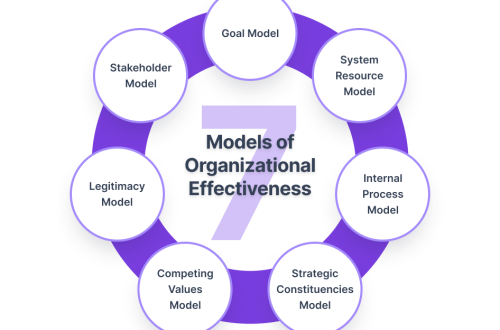Mastering the art of business is not about short-lived success or temporary wins—it’s about building a foundation that sustains growth, creates impact, and evolves with time. At the heart of true business mastery lie three timeless pillars: Consistency, Focus, and Depth. These elements are not buzzwords; they are strategic imperatives that define how great leaders build lasting enterprises.
In this article, we’ll explore each of these pillars in depth, uncovering practical strategies, examples, and frameworks to help entrepreneurs and professionals master the essence of sustainable business success.
The Foundation of Business Mastery
Before diving into each pillar, it’s essential to understand why mastery itself matters. Business mastery is not about being busy or doing more—it’s about doing the right things, consistently and effectively. It’s about refining your craft, aligning your actions with your vision, and creating systems that multiply your impact over time.
When businesses operate with clarity, discipline, and depth, they move from survival mode to strategic growth mode. And that transition begins with the first pillar—Consistency.
1: Consistency — The Engine of Reliability and Growth
Why Consistency Matters
Consistency builds trust. Whether it’s the way you serve your customers, the frequency of your marketing, or the reliability of your product delivery—consistency signals dependability. It’s what separates amateurs from professionals, and it’s the backbone of every great brand.
A business that consistently meets expectations becomes predictable in the best possible way. This predictability fosters loyalty, strengthens relationships, and drives word-of-mouth growth.
How to Build Consistency in Business
- Document Your Processes: Create Standard Operating Procedures (SOPs) for every critical task. This ensures uniform quality and minimizes errors.
- Create a Clear Rhythm: Develop a weekly, monthly, and quarterly routine for marketing, reporting, and product development.
- Set Measurable Standards: Define what “good” looks like—whether it’s customer satisfaction scores, delivery times, or content quality.
- Automate Repetitive Work: Use tools and systems to maintain output without burning out your team.
- Train and Empower Your Team: Equip everyone with the knowledge and autonomy to maintain consistency without constant supervision.
Benefits of Consistency
- Builds customer trust and brand credibility
- Improves operational efficiency
- Increases employee confidence and accountability
- Enables long-term growth through stable systems
The Consistency Challenge
The hardest part of consistency isn’t starting—it’s sustaining. Market changes, leadership fatigue, and shifting goals can disrupt rhythm. Successful leaders counter this by focusing on systems, not willpower. When your systems support your goals, consistency becomes automatic.
2: Focus — The Power of Strategic Attention
The Value of Focus in Business
In a world overloaded with distractions, focus is a superpower. Businesses that try to do everything end up doing nothing exceptionally well. Focus means choosing fewer priorities and giving them your undivided attention. It’s the art of saying no to the noise.
When resources—time, money, energy—are directed toward the highest-impact areas, results multiply. Focus simplifies execution and magnifies impact.
How to Cultivate Laser Focus
- Define Your Core Mission: Be crystal clear about what problem your business solves and for whom.
- Set Strategic Priorities: Limit your annual and quarterly goals to 3–5 key outcomes.
- Eliminate Distractions: Cut projects, channels, or clients that don’t align with your mission.
- Track What Matters: Focus on metrics that drive growth, not vanity indicators.
- Time-Block Your Efforts: Dedicate specific time slots to high-value activities like product innovation or customer engagement.
The Focus Framework: The 80/20 Rule
Use the Pareto Principle (80/20 rule) to identify where your results truly come from. Usually, 20% of your efforts drive 80% of your outcomes. Once you identify that 20%, double down on it relentlessly.
Benefits of Focus
- Increased clarity in decision-making
- Higher productivity and reduced burnout
- Faster growth through aligned actions
- Stronger market differentiation
Focus in Practice
Think of companies like Apple or Tesla—they succeed not because they do everything, but because they focus obsessively on doing a few things better than anyone else. This kind of clarity defines long-term market leaders.
3: Depth — The Art of Going Beyond the Surface
Why Depth Matters
In today’s fast-paced, digital-first economy, many businesses operate on the surface level—chasing trends, copying competitors, and focusing on instant results. However, depth is where true mastery lives. It’s about digging into customer psychology, understanding market dynamics, and perfecting your craft.
Depth transforms a company from a generalist to a specialist. When you go deep instead of wide, you build authority, trust, and expertise that competitors can’t easily replicate.
Ways to Develop Depth in Your Business
- Invest in Expertise: Develop in-house specialists rather than relying solely on external help.
- Understand Your Customers Deeply: Use data, surveys, and conversations to know their real pain points.
- Refine Your Product Continuously: Improve based on insights and feedback, not assumptions.
- Build Long-Term Relationships: Go beyond transactions to create emotional connections with clients.
- Learn and Adapt Constantly: Encourage a culture of continuous learning through workshops and mentoring.
Depth as a Competitive Advantage
Depth is the foundation of innovation. When your team understands problems deeply, they can create original solutions. It’s why niche brands often outperform giants—they know their customers inside out and deliver unmatched value.
Benefits of Building Depth
- Stronger brand authority and trust
- Greater customer retention and loyalty
- Higher margins due to perceived expertise
- Increased innovation and adaptability
Integrating Consistency, Focus, and Depth
These three pillars are not independent—they amplify one another. Think of them as the trinity of sustainable business success:
- Consistency ensures that your actions are steady and reliable.
- Focus ensures that your energy is directed toward what truly matters.
- Depth ensures that your efforts create lasting impact and authority.
Together, they create momentum—a state where progress compounds over time. When your business operates with consistency, focus, and depth, every effort builds upon the last, creating exponential growth.
Actionable Strategies to Embody Business Mastery
- Develop a Business Mastery Roadmap
- Define quarterly goals under each pillar.
- Review performance monthly and adjust strategies.
- Create Systems, Not Just Goals
- Build automated workflows and accountability structures that support consistent execution.
- Measure What Matters Most
- Track meaningful KPIs tied to focus areas and depth-building initiatives.
- Prioritize Learning and Development
- Invest in skill-building, mentoring, and innovation labs to deepen expertise.
- Simplify to Amplify
- Eliminate unnecessary complexity and streamline operations for sharper focus.
The Future of Business Mastery
As technology accelerates and competition intensifies, businesses that thrive will be those that master the fundamentals—not by doing more, but by doing better. Consistency creates reliability, focus breeds clarity, and depth fuels innovation. The intersection of these three creates organizations that are adaptable, resilient, and built to last.
Business mastery is not a one-time achievement; it’s an ongoing evolution—a journey that rewards those who show up every day, stay focused on their vision, and go deeper than the rest.
Frequently Asked Questions (FAQs)
1. What is the main difference between business success and business mastery?
Success can be temporary, while mastery is sustainable. Mastery focuses on long-term growth through consistent habits, deep expertise, and strategic focus.
2. How can small businesses maintain consistency with limited resources?
Small businesses can maintain consistency by automating processes, creating repeatable systems, and prioritizing key customer touchpoints instead of spreading too thin.
3. Why is focus more important than multitasking in business?
Multitasking dilutes impact, while focus ensures precision and higher-quality results. Focused efforts lead to measurable progress and stronger outcomes.
4. How does depth help businesses stand out in crowded markets?
Depth creates differentiation through expertise and specialization. When a business understands its customers and niche deeply, it offers unique value that generalists can’t match.
5. Can consistency ever limit innovation?
Not if balanced correctly. Consistency provides structure, while innovation thrives within that framework. Reliable systems actually make creative experimentation safer.
6. How can leaders develop focus in their teams?
Leaders can promote focus by setting clear goals, minimizing distractions, assigning ownership, and celebrating progress on core priorities.
7. What is the first step toward achieving business mastery?
Start by defining your core mission, establish consistent routines, and identify one area where you can go deeper than your competitors.
In conclusion, mastering business is not about speed—it’s about direction. When you operate with Consistency, Focus, and Depth, your business becomes more than a company—it becomes a legacy of sustained excellence and purposeful growth.





